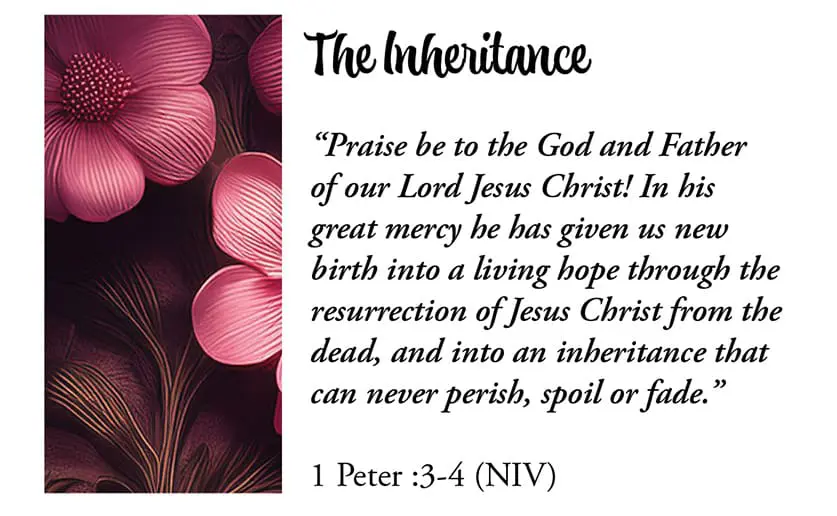
Language is a rich and complex marvel that allows humans to communicate, express ideas, and share emotions. It is the basis of relationships in the world among humans and can be most fragile. The word “word” can embody various meanings that depend on its context, especially in the Bible. Consider The Living Word, The Written Word, and The Spoken Word. Understanding the distinctions between the use and meanings is crucial for comprehending the depth and richness of biblical revelation.
Living Word
The term “Living Word” refers to Jesus Christ, the incarnate Word of God. In the Gospel of John, Jesus is introduced as the Logos, the divine Word that became flesh and dwelt among us (John 1:14). This concept emphasizes that Jesus is not merely a historical figure but the eternal, living presence of God. He embodies the fullness of God’s revelation and serves as the ultimate mediator between God and humanity.
Please note that The Written Word also has a living nature, as highlighted in Hebrews 4:12, where it is described as “living and active, sharper than any double-edged sword.” This passage underscores that the Word of God, manifested in Jesus, is dynamic and transformative, capable of penetrating the human heart and spirit. The Living Word is not confined to the pages of a book or to a limited definition. Still, it is an ever-present reality that speaks into the lives of believers, guiding, comforting, and challenging them.
God’s Living Logo
John 1:14 (NIV)
“The Word became flesh and made his dwelling among us. We have seen his glory, the glory of the one and only Son, who came from the Father, full of grace and truth.”
Written Word
The “Written Word” refers to the Scriptures, the acknowledged texts of the Bible. These sacred writings are considered the inspired and authoritative record of God’s revelation. The Apostle Paul, in his letter to Timothy, asserts that “all Scripture is God-breathed and is useful for teaching, rebuking, correcting, and training in righteousness” (2 Timothy 3:16 NIV). This affirmation underscores the divine origin and enduring relevance of the biblical texts.
The Written Word serves multiple purposes within the Christian faith. It provides a historical account of God’s interactions with humanity, offering lessons and principles for living a life that aligns with God’s will. It also preserves the teachings of Jesus and the apostles, ensuring that successive generations can access the foundational truths of the faith. Furthermore, the Written Word functions as a standard against which all doctrinal and ethical claims must be measured, safeguarding the integrity of the Christian message.

Another way to understand the Written Word is from the viewpoint that it is a legal document. It fully records in public view promises made to individuals, nations, and the realm of humanity. It is the written last Will and Testament of the Most-High God, which became sanctioned at the death of the Son of Promise, Jesus!
Since it is impossible for the eternal God to die and leave an inheritance, He laid out the mechanics of such a transaction in a written document. A rock-solid artifact of who He is and His desire for people.
Spoken Word
The “Spoken Word” refers to the proclamation of God’s message through preaching, teaching, prophecy, and personal testimony. In the Bible, the Spoken Word is a powerful instrument for conveying God’s will and purposes. The prophets of the Old Testament, for instance, were chosen vessels through whom God communicated His warnings, promises, and instructions. Though spoken in specific historical contexts, their words often carried timeless truths that resonate across the ages.
In the New Testament, the Great Commission stresses the importance of the Spoken Word in the mission of the church. Jesus charged His disciples to “go and make disciples of all nations, baptizing them in the name of the Father and of the Son and of the Holy Spirit, and teaching them to obey everything I have commanded you” (Matthew 28:19-20 NIV). This directive highlights the significance of verbal proclamation in spreading the gospel and nurturing the faith of believers.
The Spoken Word is also intimately connected with the work of the Holy Spirit. On the Day of Pentecost, the apostles were filled with the Holy Spirit. They began to speak in various tongues, declaring the wonders of God (see Acts 2:4-11). This event signifies the empowerment of believers to communicate God’s message effectively, transcending linguistic and cultural barriers. The Spirit continues to inspire and guide those who speak God’s Word, ensuring it remains relevant and impactful.
Interconnections and Implications
While the Living Word, Written Word, and Spoken Word represent distinct facets of divine communication, they are deeply interconnected. Jesus, the Living Word, is the ultimate revelation of God, and His life and teachings are recorded in the Written Word. The Written Word, in turn, provides the content and foundation for the Spoken Word, equipping believers to share the gospel and teach others.
These three dimensions of the Word of God complement and reinforce each other, creating a holistic framework for understanding and experiencing divine revelation. The Living Word brings God’s transformative presence into the world; the Written Word preserves the truth of God’s message for all generations; and the Spoken Word actively communicates that truth, making it accessible and applicable to people’s lives.
In conclusion, the distinctions between the Living Word, Written Word, and Spoken Word in the Bible reflect the comprehensive nature of God’s communication with humanity. Each dimension offers unique insights and plays a vital role in conveying the divine message. Together, they form a rich tapestry that reveals God’s character, purposes, and will, engaging believers in a deeper relationship with Him.
Feature Images: Pink flowers and scroll GENAI Text to Image | Scripture quotations marked NIV are taken from THE HOLY BIBLE, NEW INTERNATIONAL VERSION®, NIV® Copyright © 1973, 1978, 1984, 2011 by Biblica, Inc.® Used by permission. All rights reserved worldwide.


